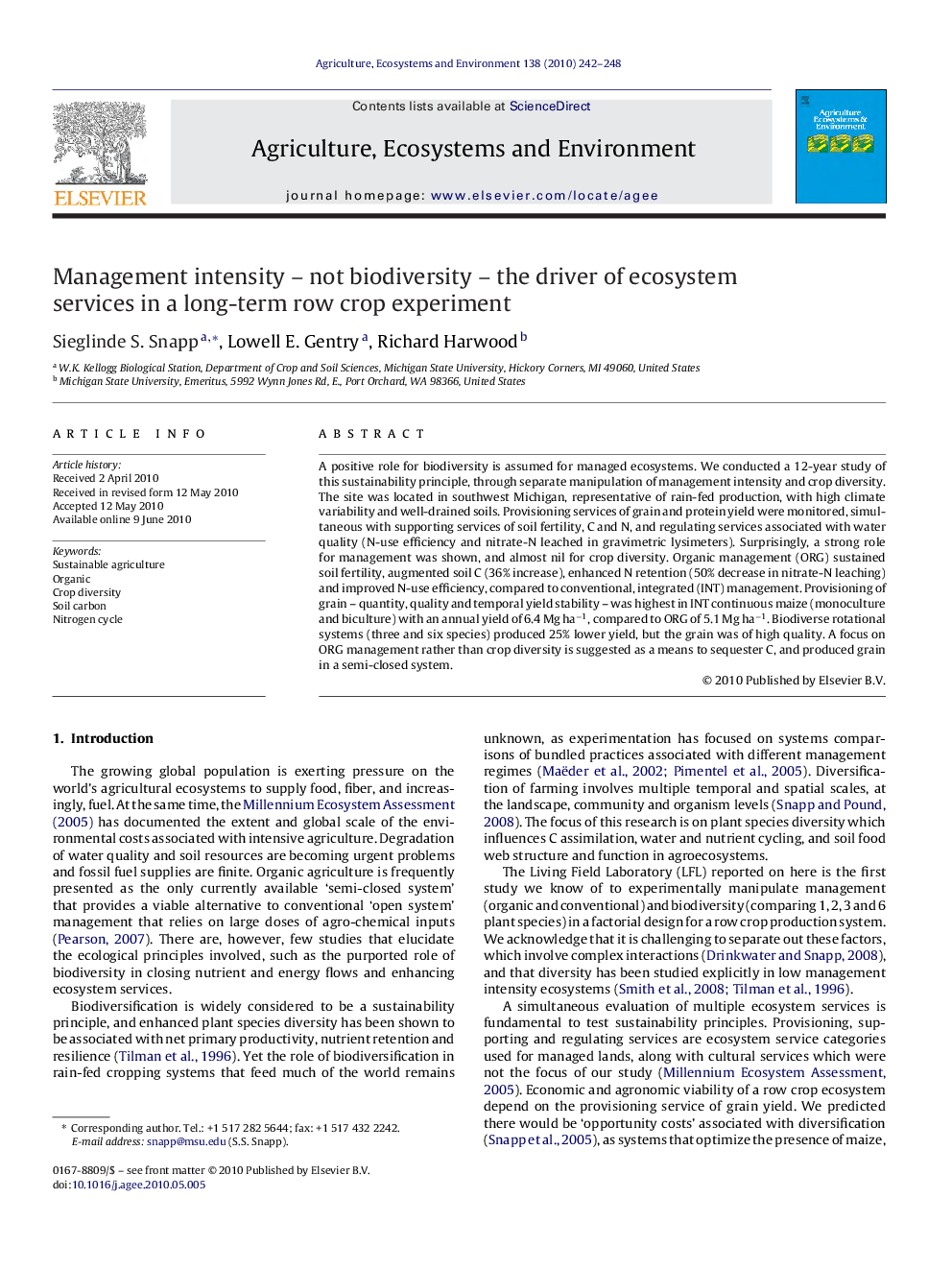| کد مقاله | کد نشریه | سال انتشار | مقاله انگلیسی | نسخه تمام متن |
|---|---|---|---|---|
| 2414958 | 1552113 | 2010 | 7 صفحه PDF | دانلود رایگان |

A positive role for biodiversity is assumed for managed ecosystems. We conducted a 12-year study of this sustainability principle, through separate manipulation of management intensity and crop diversity. The site was located in southwest Michigan, representative of rain-fed production, with high climate variability and well-drained soils. Provisioning services of grain and protein yield were monitored, simultaneous with supporting services of soil fertility, C and N, and regulating services associated with water quality (N-use efficiency and nitrate-N leached in gravimetric lysimeters). Surprisingly, a strong role for management was shown, and almost nil for crop diversity. Organic management (ORG) sustained soil fertility, augmented soil C (36% increase), enhanced N retention (50% decrease in nitrate-N leaching) and improved N-use efficiency, compared to conventional, integrated (INT) management. Provisioning of grain – quantity, quality and temporal yield stability – was highest in INT continuous maize (monoculture and biculture) with an annual yield of 6.4 Mg ha−1, compared to ORG of 5.1 Mg ha−1. Biodiverse rotational systems (three and six species) produced 25% lower yield, but the grain was of high quality. A focus on ORG management rather than crop diversity is suggested as a means to sequester C, and produced grain in a semi-closed system.
Journal: Agriculture, Ecosystems & Environment - Volume 138, Issues 3–4, 15 August 2010, Pages 242–248